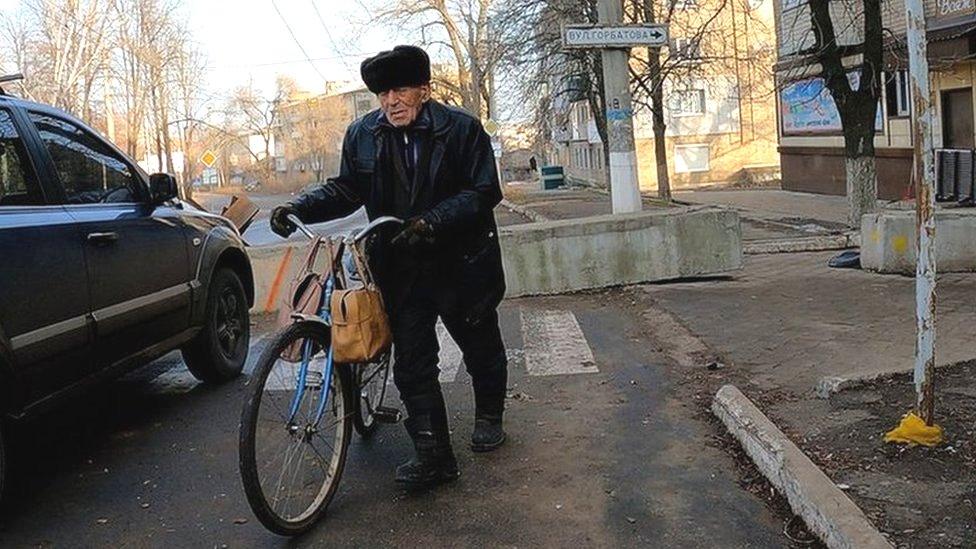Ukraine war: Funeral held for battleground body collector
- Published
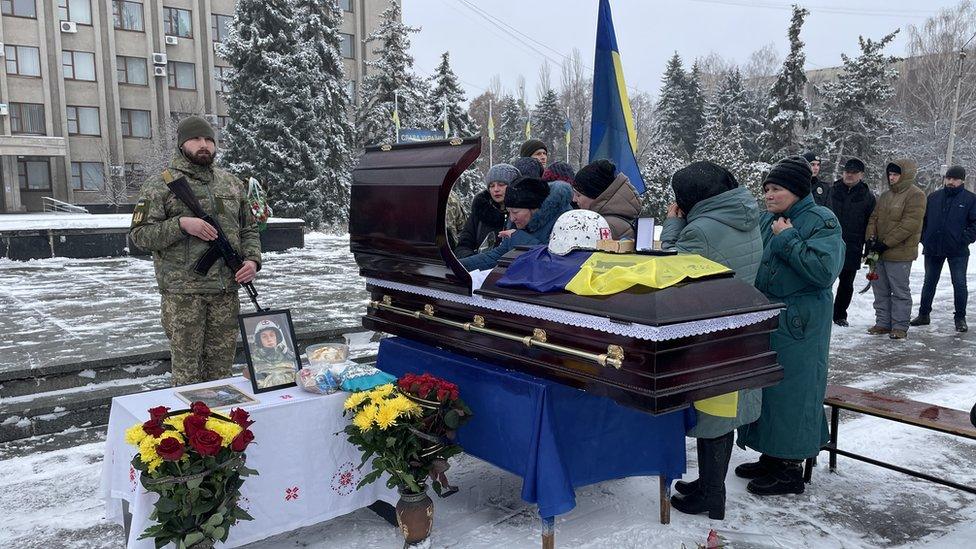
Denys Sosnenko, who helped to recover bodies from battlegrounds, died when his van drove over a landmine
Against a backdrop of muffled booms from the frontlines to the south and east, people sank to their knees and threw roses in front of the van as it inched past them.
Then, as the back door opened and a wooden coffin was pulled out, the sobbing began.
"My son! Why?" cried Ludmilla Sosnenko, clutching her daughter for comfort.
There have been many untimely, unexpected funerals in this northern Donbas town in recent months, but this one, unusually, was not for a soldier or a regular civilian.
Denys Sosnenko - a 21-year-old former Ukrainian national kickboxing champion - volunteered last year to work as a body collector for a charitable organisation known as Black Tulip, who scour the frontlines for the abandoned corpses of soldiers, both Ukrainian and Russian.
"Denys - there are many angels on your shoulders today - the angels of those you brought back home," said Alexey Yukov, the local head of Black Tulip, addressing the crowd. "Because of your work so many soldiers, who died in places no one would ever have looked, have been reunited with their families."
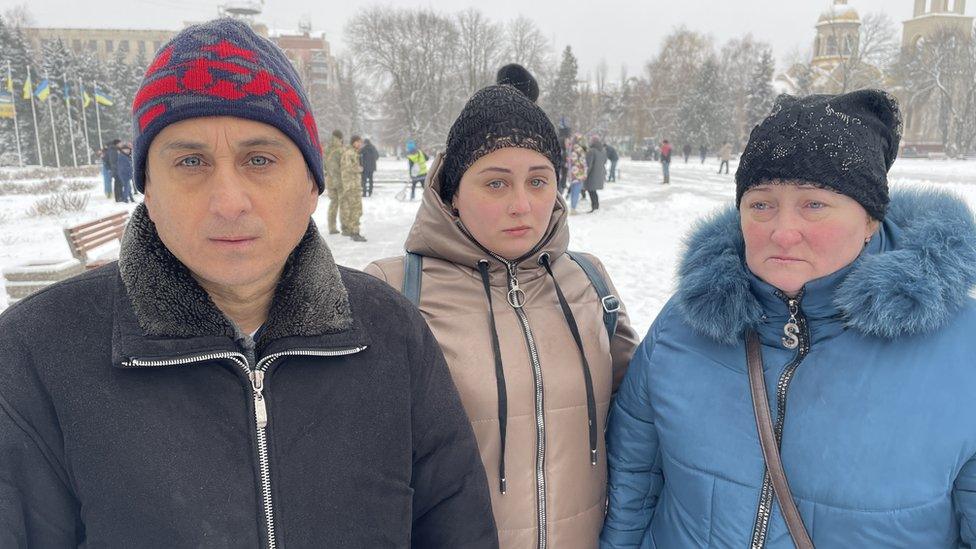
Among those at the funeral were Deny's father Eduard (left), mother Ludmilla (right) and his sister Natalia (centre)
Sosnenko died last week when the van he was driving - a van very much like the one that carried his body into the town square - hit an anti-tank mine close to the frontlines.
"He always said 'this is my mission - I have to do this'. It was dangerous work, but he would reassure us, saying 'don't worry, we are protecting the souls of the dead,'" his mother Ludmilla said. "He was always cheerful and had big plans for life after the war."
Last year, the BBC filmed Sosnenko and his team at work more than once.
He spoke of the horrors of the job, picking bodies up, piece by piece, and of the constant dangers - not just from the war raging around them, but from boobytraps often hidden beneath corpses, allegedly by retreating Russian troops. The team often use drones and other equipment to search for explosive devices.
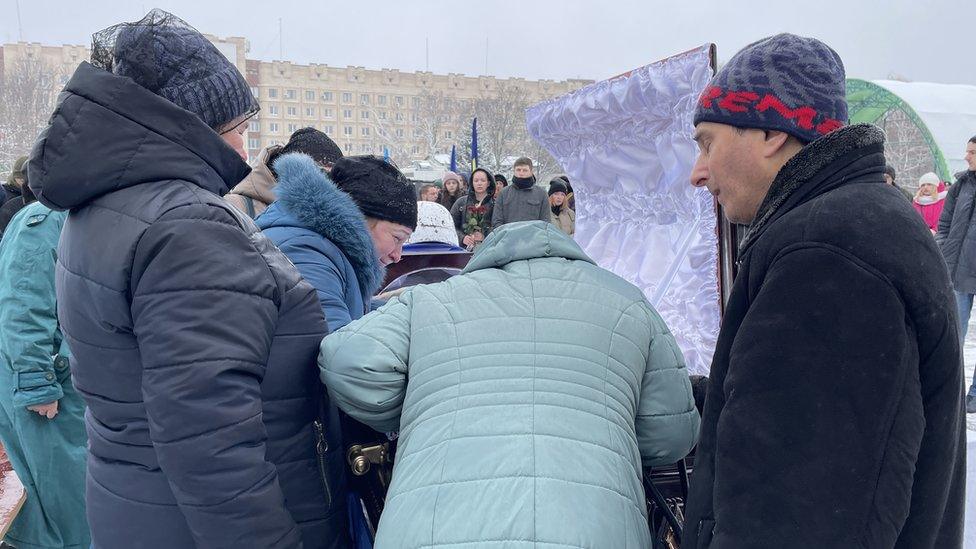
In an interview with the BBC, Denys Sosnenko had spoken about the dangers of his job
But Sosnenko and his colleagues also talked passionately about the importance of their work.
Many of the bodies they've collected over the past 11 months have been those of Russian soldiers which have then been exchanged, across the frontlines, for the bodies of missing Ukrainian servicemen.
"We feel a sense of grace in doing this, in bringing people home to their families," Artur Semeyko - who worked alongside Sosnenko - said, recalling the peace they had brought to people who had previously been unable to arrange a proper funeral for their missing relatives.
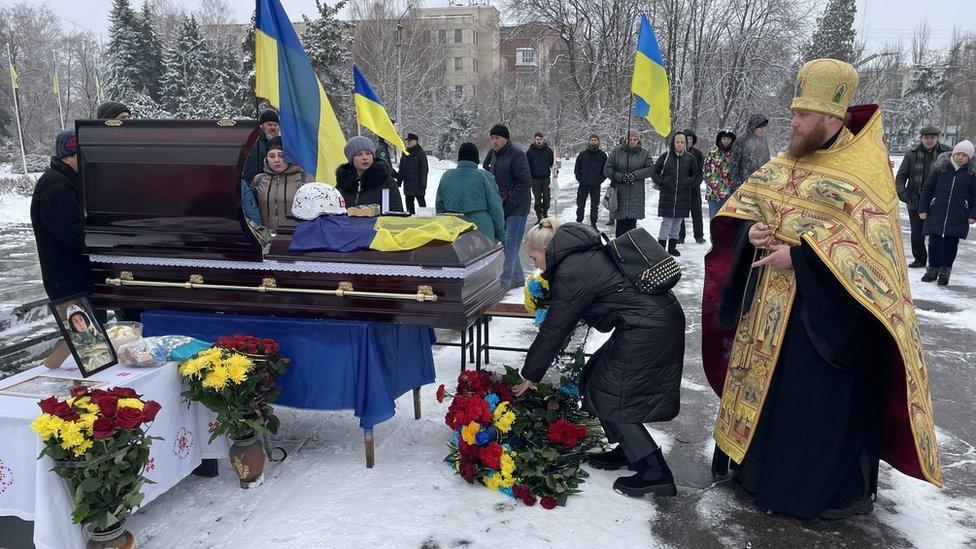
Sosnenko's colleagues insist they will continue their work "even if it costs us our lives"
Speaking after Sosnenko's funeral, in a snow-bound cemetery on the edge of Slovyansk, Mr Semeyko insisted that nothing had changed.
"We are glad we were able to bury him with honour," said Mr Semeyko. "He accomplished so much in such a short life, but now we must continue our work to bring more people home."
"We will return to work as soon as possible," agreed Mr Yukov.
"We will go back, even if it costs us our lives," he added. "We realise that we don't have time to mourn, because the war goes on and so many lads are dying. They too, must be brought home."
Related topics
- Published19 January 2023
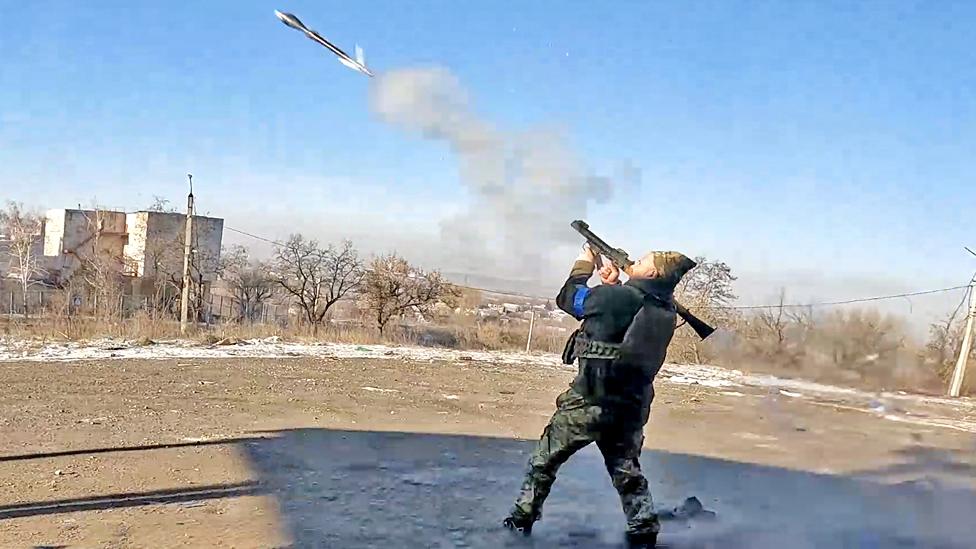
- Published22 January 2023
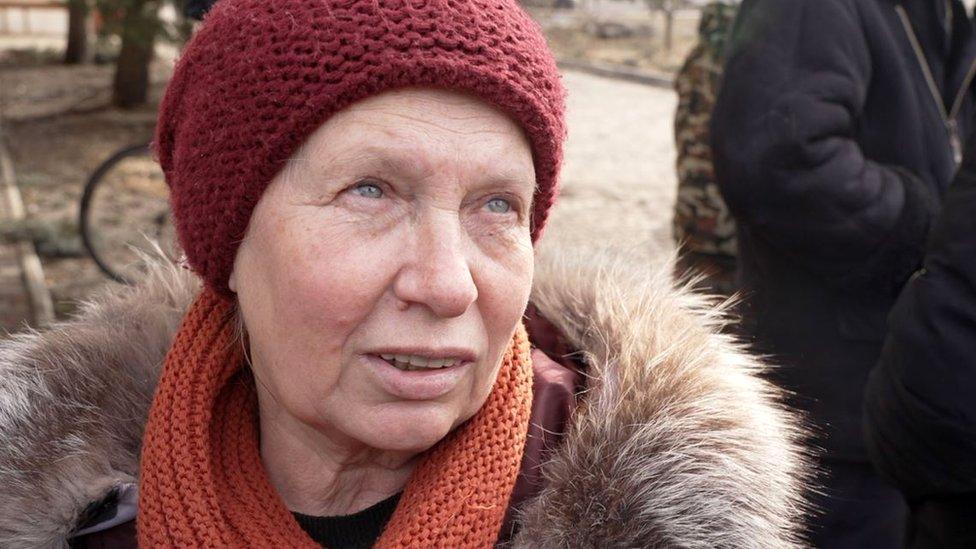
- Published4 January 2023
